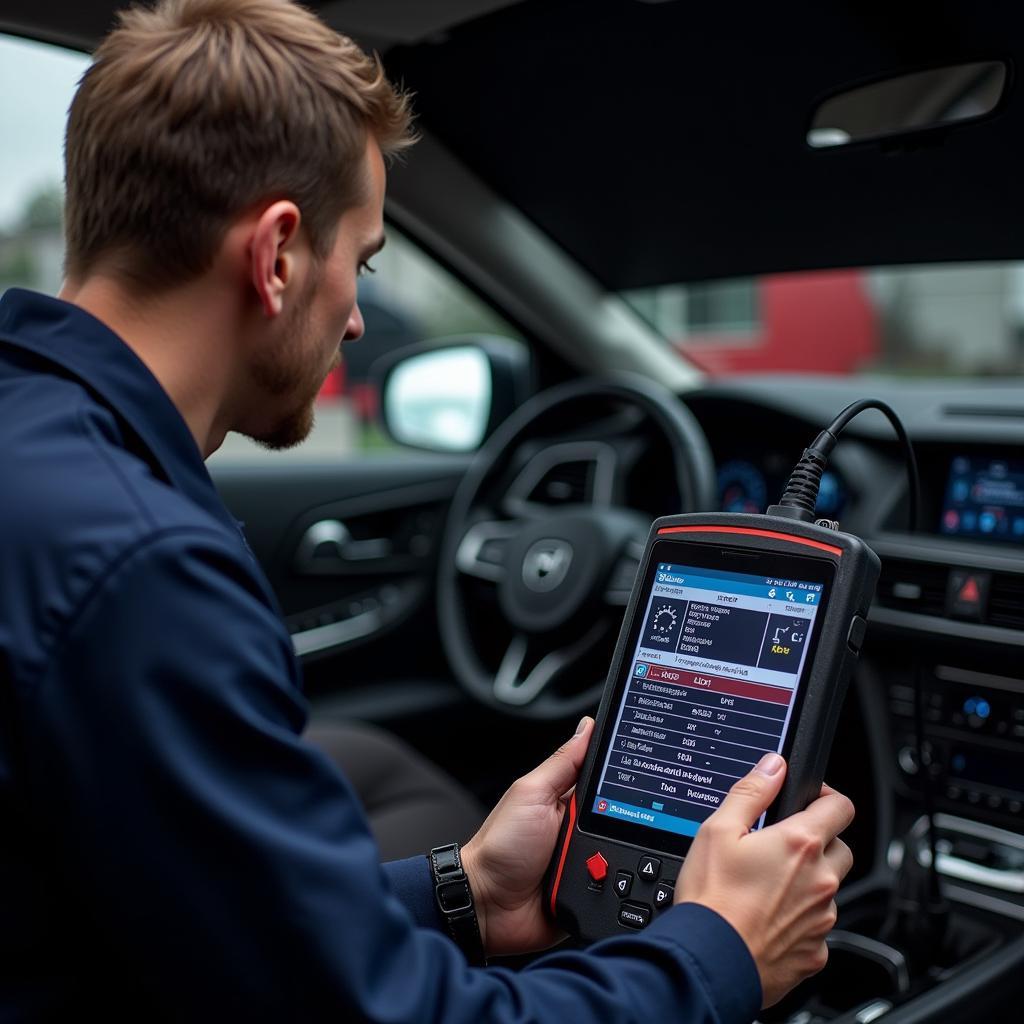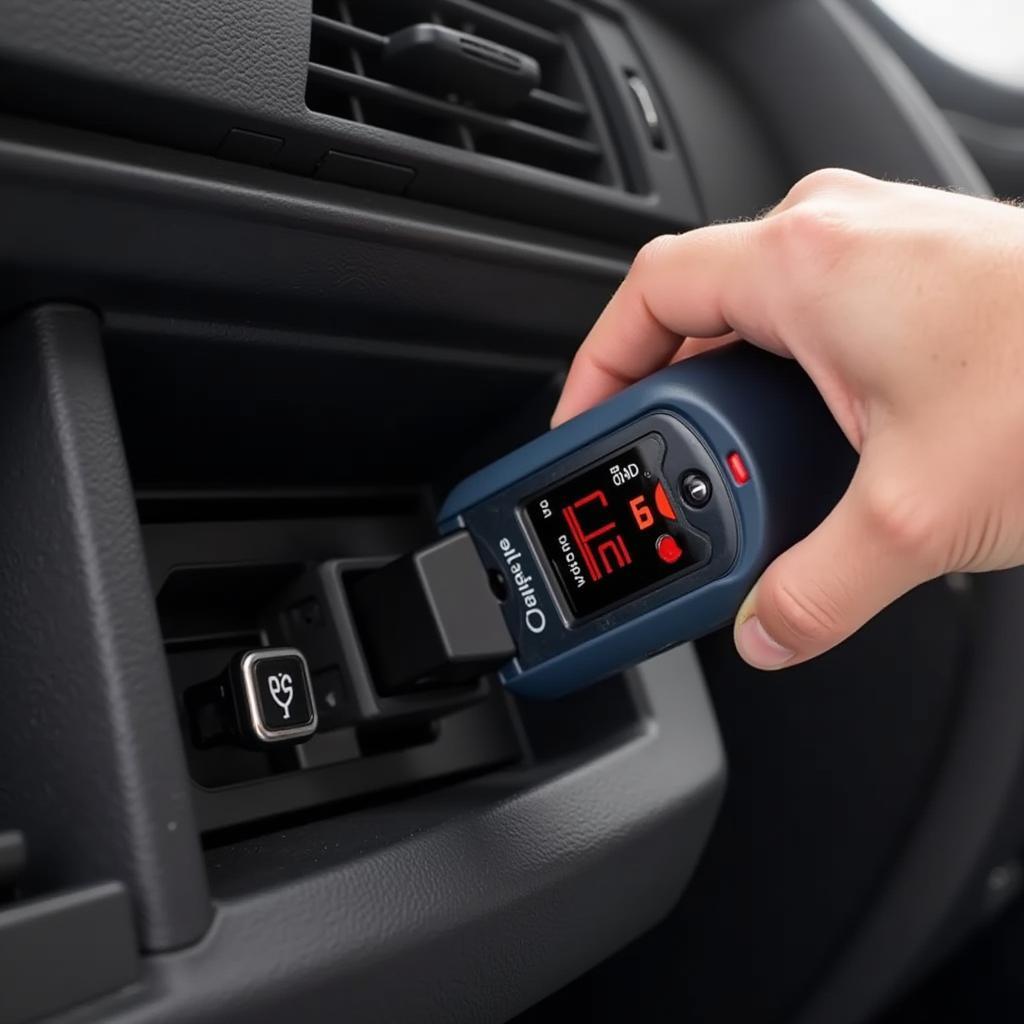Understanding what triggers a warning light on your dashboard and how much it might cost to diagnose the problem can be daunting. Diagnostic Prices On Cars vary widely, depending on a range of factors. This comprehensive guide will walk you through the ins and outs of car diagnostic costs, helping you navigate this often-confusing aspect of car maintenance.
Factors Influencing Diagnostic Prices
Before diving into specific costs, it’s essential to understand what influences the price of car diagnostics. Here are some key factors:
- Complexity of the Issue: Diagnosing a simple sensor problem will generally cost less than tracing a complex electrical fault.
- Make and Model of Your Car: Luxury and European cars often have more sophisticated systems, potentially leading to higher diagnostic fees.
- Location: Labor rates for mechanics vary depending on your geographical location.
- Shop Type: Dealerships typically charge higher labor rates than independent repair shops.
- Diagnostic Equipment: Shops with advanced diagnostic tools might charge more for their use.
Average Diagnostic Costs
While prices fluctuate, here’s a general idea of what you might expect to pay:
- Basic Diagnostic Scan: $50 – $100. This usually involves reading the error codes stored in your car’s computer.
- In-depth Diagnostic Testing: $100 – $400. This level of diagnosis involves more time and expertise to pinpoint the root cause of more complex issues.
 Mechanic Performing In-depth Diagnostic Test
Mechanic Performing In-depth Diagnostic Test
Common Car Diagnostic Costs by System
Here’s a breakdown of average diagnostic costs for common car systems:
- Engine: $100 – $200
- Transmission: $80 – $150
- Brakes: $75 – $125
- Electrical System: $100 – $250
- Air Conditioning: $80 – $150
Saving Money on Diagnostic Costs
- Ask for a Quote: Always ask for an estimate before authorizing any diagnostic work.
- Check for Coupons or Discounts: Many repair shops offer coupons or discounts on diagnostic services.
- Consider DIY Diagnostic Tools: Affordable car ecu diagnostic tools are available for basic code reading. However, keep in mind these tools might not provide the depth of information a professional scan can.
 Using a DIY Car Diagnostic Tool
Using a DIY Car Diagnostic Tool
Diagnostic Trouble Codes (DTCs)
When your car’s computer detects a problem, it generates a DTC. Understanding these codes can give you valuable insight into your car’s health. However, simply reading the code doesn’t always pinpoint the exact problem.
The Importance of Professional Diagnostics
While DIY car diagnostics tool downlond and online resources can be helpful, there’s no substitute for a professional mechanic’s experience and knowledge. They can accurately interpret DTCs, perform advanced tests, and recommend the appropriate repairs.
Frequently Asked Questions about Diagnostic Prices on Cars
1. Why is my check engine light on?
The check engine light can illuminate for various reasons, from a loose gas cap to a serious engine issue. A diagnostic scan is the only way to know for sure.
2. Can I drive my car with the check engine light on?
It depends on the severity. If the light is flashing, it usually indicates a serious problem, and you should stop driving immediately.
3. Are diagnostic fees refundable if I get the repair done at the same shop?
Some shops might waive or deduct the diagnostic fee if you proceed with the recommended repairs. It’s always best to ask about their policy beforehand.
4. Can I diagnose car problems myself?
While DIY app car diagnostics are available, they might not be as comprehensive as professional equipment.
5. How often should I get my car diagnosed?
It’s generally a good idea to get your car diagnosed annually or whenever you notice unusual performance issues.
Need More Help?
If you’re experiencing car troubles or need professional diagnostic assistance, don’t hesitate to reach out! Our team of experts at DiagFixPro is here to help. Contact us via WhatsApp: +1(641)206-8880, or Email: [email protected]. We offer 24/7 customer support to address all your car diagnostic needs.

Leave a Reply